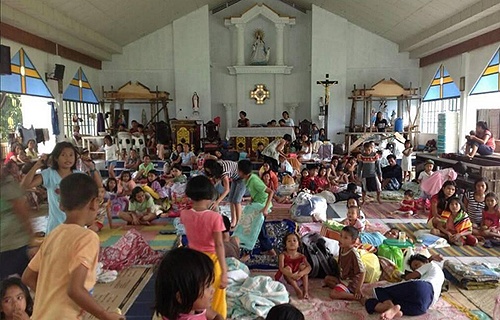“My food is to do the will of him who sent me and to finish his work.” – Jesus (John 4:34, NIV)
Nations struggle to provide a meagre resilience with respect to hazards for their people, let alone a just resilience – resilience that maintains or even augments social justice – resilience for all in equal and fair degree, regardless of age or health or wealth or heritage or position in society. In the United States, the call for a Weather-Ready Nation, Great ShakeOut earthquake drills, and other measures to build preparedness all find the social-justice dimension a challenge. Disasters have a way of aggravating pre-existing social inequities. What’s more, sessions earlier this week at the 2104 Natural Hazards on legal issues posed by hazards mitigation at all stages of preparedness, emergency response, and recovery made one thing clear: the law is a blunt instrument for dealing with social justice… and too often capable of taking us in other directions.
Given that top-down, command-and-control approaches to this problem offer so little reason for hope, it’s natural to consider help from another direction… from a perspective that you and I are accustomed to call the spiritual. We could adopt many starting points. But for illustrative purposes here, let’s center on Christianity, for three reasons. First, it allows us to be concrete. Second, it’s the faith I know best (though not particularly well). Third, its founder, Jesus Christ, asserted a special level of authority among the major religious leaders. He didn’t just claim to be a good person; he claimed to be the Son of God. (Please chime in with your own comments on what other faiths have to say about just resilience! It would really enrich the discussion.)
During his time on earth, Jesus was all about social justice. He spoke of God’s special love for the poor and disenfranchised, for women, for Gentiles, for children, for the sick and infirm, tax collectors, prostitutes, and countless others. He proclaimed that everyone, including everyone from all these groups, had access to the kingdom of God, which he said was not remote or distant or obscure, but present, at hand, even inside us.
And he claimed that this kingdom, by itself, was sufficient. That God and his indwelling love was and is and will always be everything we need. He said that he fed on this food, that people who drank from this well would never thirst, and more. He used every metaphor and parable and image he could think of, all to say that we should allow, happily allow, everything else to be stripped from us, and that if we did we would find that we still have all the requirements of a meaningful, satisfying life at our disposal.
Everything stripped from us? Sounds like what we experience in the aftermath of a disaster. Jesus asserted that even in such dire, calamitous circumstances, we are, at the core, just as equipped and ready as we were prior to the earthquake or flood or hurricane. Before the disaster we were so caught up with material stuff and life’s busyness we just didn’t realize it how unnecessary those trappings were.
Sounds like tough love, but hazards experts and practitioners know this to be true. In as many circumstances as possible, they work to give disaster survivors an active role in response and recovery, starting with serving in soup kitchens and in shelters in a range of roles, and extending to contributing to the planning and the actual rebuilding throughout the recovery phase. It’s all participatory, not a spectator sport. Here’s the magic: from the first moment following a disaster that you and I pick ourselves up and start assisting others, helping those around us, encouraging them, working with them, we send ourselves a message that we ourselves are resilient on the most fundamental, personal level. (This in part is the message from Rebecca Solnit’s marvelous 2009 book, a Paradise Built in Hell: The Extraordinary Communities that Arise in Disaster.) Shown below, a church shelter following typhoon Haiyan.
 Looking inside, to the depths of our being, for the source of resilience in time of disaster, seeing just resilience as something we can each individually offer rather than something we should passively demand of others?
Looking inside, to the depths of our being, for the source of resilience in time of disaster, seeing just resilience as something we can each individually offer rather than something we should passively demand of others?
Might be worth a try.


A gem of a message; let me illuminate another facet. Too often, those who call for “social justice” are actually calling for social engineering – some form of taking from the rich to [presumably, ahem] give to the poor. But what if – instead of money – we give our time to teach those less fortunate how to protect what little they have? What if we teach them how to form and nurture personal networks that will allow them to survive – and often thrive – even in the face of overwhelming change? What if, instead of reinforcing their vulnerabilities, we helped them find their strengths? If you believe as I do that resilience requires strength – then our efforts should be directed not so much toward meeting the needs of the disadvantaged for them, but much more in helping the disadvantaged to be able to meet those needs themselves.